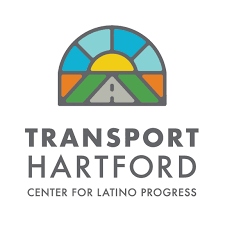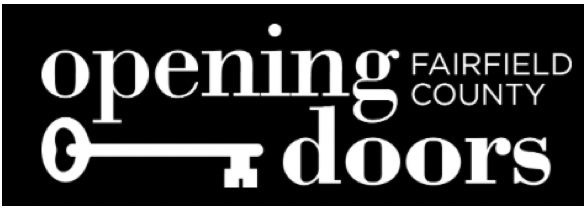Gina Calabro, Executive Director of AIA Connecticut:
“Much more than designing buildings or whole communities, architects have a greater task. Health, safety, and welfare are always at the forefront of the profession, so it is our moral obligation to design better homes and communities that people want to work, live and play. For AIA Connecticut, HB 6107 upholds these values, and our strategic objectives to support equity, inclusive growth, and healthy, sustainable environments.”
Deb Polun, Executive Director of CAFCA:
"In a year when justice and equity have been at the forefront, CAFCA and CT's Community Action Agencies are pleased to see housing justice receive attention. HB 6107 will lead to more affordable and diverse housing options across our state - creating opportunity for all and improving lives. Thank you to DesegregateCT, policymakers, and the many advocates across the state who have worked together toward this goal!"
CT Climate Crisis Mobilization:
“Current moral and existential imperatives of social justice and the climate crisis now demand new approaches to land use. HB 6107 moves in that direction. New housing opportunities where infrastructure already exists, planning for affordable housing, less reliance on the automobile, implementation of the Fair Housing Act, requiring towns to articulate standards, not merely use the reference to district 'character', all move toward necessary land use regulation. Most important there's a necessary public discussion that hadn't taken place before.”
Alicia Dolce, Executive Director of the CT Green Building Council:
"We believe that it is time to re-think how we create communities that are healthier, more equitable, resilient, and sustainable for future generations. Expanding the ability to build more multi-family housing is critical to being able to meet our state's housing needs and climate goals since multi-family housing is inherently more energy-efficient than single-family housing. In addition, building single-family housing eats up our state's precious farmland and wildlife habitat. Sustainably increasing our housing stock means building more dense, walkable neighborhoods, and zoning reform is a necessary step to achieving that future."
CT Voices for Children:
"Connecticut Voices for Children seeks a thriving and equitable state where all children achieve their full potential. Reaching this vision requires the development of more affordable housing and the dismantling of historic policies and practices that prevent people from living where they want to live. We support HB 6107 because it requires municipalities to affirmatively further fair housing and allows for affordable housing growth across the state. While there is much more work to be done, HB 6107 is a crucial step forward in advancing housing equity."
Amy Dowell, State Director, Education Reform Now CT:
“Education Reform Now CT has been a proud member of the DesegregateCT coalition, and an outspoken supporter of housing access and opportunity for all Connecticut families. We are encouraged by the progress made in this legislation, and we look forward to more efforts that highlight the direct connection between housing, educational excellence and more freedom for all parents to live and enroll their children in the community and public school that they may choose.”
Christie Stewart, Director of Fairfield County Center for Housing Opportunity:
“The Governor’s signature on HB6107 is an important step in ensuring that zoning decisions in our communities better reflect and uphold the values of inclusion and equity that so many Fairfield County and CT residents stand behind. Our communities can and should be both wonderful places to live and offer diverse housing choices affordable to all. AT FCCHO we look forward to working with our partners and community leaders to advance that goal.”
Ann Gadwah, Sierra Club of Connecticut:
“Sierra Club CT is pleased that HB 6107 passed the legislature and will now be signed into law. Provisions of this bill that cap harmful municipal parking mandates, require training on environmental issues, and mandate that zoning regulations protect the state’s environmental resources show the role that good zoning laws can have in protecting the environment. In addition, this bill will boost our economy and make Connecticut more equitable.”
Jim Horan, Executive Director, LISC Connecticut:
“LISC Connecticut recognizes the critical importance zoning reform will play in expanding housing choice and opportunity in our state. If we hope to tackle the staggering racial health, wealth, and opportunity gaps that exist in Connecticut, that starts with examining where people live and why. Dismantling historical policies that have been used to hamper housing development – such as removing the word ‘character’ from the zoning code – are important first steps.”
Jim Crawford, Member of the Advisory Council to HOPE Partnership and Former State Representative:
“This legislation is a significant step forward in the struggle to create equity in housing options for CT. It’s primary importance is focusing the public’s attention on this glaring issue."
Mark Pierce, The Valley Stands Up:
"As a local civic organization in the Lower Connecticut River Valley, we in The Valley Stands Up are proud to support DesegregateCT. Zoning reform is key to our mission to support the dignity and human rights of all. HB 6107 is a tangible first step in this direction.”
Southern New England Conference - United Church of Christ:
"As people of faith, we believe that we have a moral responsibility to ensure that all members of our community - young and old, rich and poor - can prosper. This bill is a critical first step to achieving a Connecticut we can all be proud of.”
Anthony Cherolis, Transportation Justice Manager at Transport Hartford:
“"Transportation, land use, sustainability, reducing pollution, reducing segregation, and increasing affordable housing are all connected issues. We were glad to work with the coalition on their 2020/2021 efforts and successful 2021 legislation. Congratulations to all that were involved in this first bill that will legalize and encourage smart infill development, increased housing density around transit and rail stations, more affordable housing, and less car-centric cities and town centers. We look forward to the continuation of these efforts and the adoption of Smart Growth principles in cities and towns across Connecticut."
Dice Oh, Member of People Friendly Stamford:
“HB 6107 is one small step forward in making Connecticut's neighborhoods more affordable, walkable, and less car-dependent. People Friendly Stamford supports zoning reform because of the need for abundant housing, particularly in walkable neighborhoods and areas served by transit. We can simultaneously improve housing affordability, reduce car dependency, and lower our carbon footprint with smart housing development practices. We look forward to seeing more reforms along these lines in future years."
National Association of Social Workers - Connecticut Chapter:
"As Social Workers, we face the task in assisting in finding housing for homeless, seniors, disabled people, veterans, low income and working-class families. We know that where people reside in their respective zip codes, will predict the quality and longevity of life outcomes and expectancy. Only 5% of all black children live in upscale neighborhoods according to Harvard University of Quarterly Journal of Economics. According to City Commentary, black households have 42% lower incomes to white households. Hispanic Households are even lower. HB 6107 moves us in the direction of having more racially and economically balanced communities to the betterment of all."
Pam Ralston, Director of Opening Doors Fairfield County:
“ODFC considers HB 6107 as a hopeful solution to historical restrictions on the availability of affordable housing stock for the Fairfield County region. The harsh reality for area renters is that they face an endless cycle of low availability, high cost rental housing, increasing the likeliness of being severely cost burdened and, thus, unstably housed. Restructuring zoning rules offers a possible increase in affordable housing through the production of accessory dwelling units that maximize on wasted density square footage in older homes and outbuildings if converted to rental units. Allowing the creation of ADU’s by reducing strict zoning rules will enable homeowners to restructure existing housing quickly with minimal renovation, thereby increasing existing affordable housing available to low-moderate income renters. Such strategies also offer older individuals the chance to age in place at family owned properties, young adults with limited income and credit history an opportunity to build rental history and financially strapped homeowners the enterprise of retaining ownership through access to rental income.”
Patrick McMahon, CEO of CT Main Street Center:
“We applaud the General Assembly for passage of HB 6107 as a first step towards creating a wider mix of housing types across the state and we look forward to the Governor signing it into law. We also recognize the devotion and hard work of DesegregateCT and its broad coalition of organizations that advocated for lasting and impactful change. Recognition must also be given to the individual legislators who championed the bill and ensured zoning reforms would be adopted this session. We joined the DesegregateCT coalition because we believe that housing is a critical component to the vibrancy and success of our downtowns, village centers and neighborhood commercial districts. Zoning reforms can help unleash the economic potential of these areas and help fuel the state’s economy. Promoting housing where infrastructure already exists and near transit and small businesses is smart public policy. Growing the housing supply; increasing housing diversity; and improving land use processes are all worthy goals and passage of zoning reforms this session will help communities move toward achieving these goals. Congratulations to all those who were involved in this important legislative initiative."
Hartford Foundation for Public Giving:
“The Hartford Foundation for Public Giving is dedicated to dismantling structural racism and supporting a more equitable region. To this end we have supported research that has laid bare the continued existence and persistent effects of exclusionary zoning on our communities. We have supported education and organizing of residents, municipalities and advocates towards development of solutions that would create accessible communities for everyone. Giving residents, ALL residents, the choice of where they want to live, is key to creating a more vibrant and equitable community and the passage of HB 6107 is an important first step towards this goal. The Hartford Foundation is proud of the efforts of so many Connecticut residents, nonprofits and government entities in moving us closer towards this goal.”
Marisa Mead, Co-Director of Spring Forward Hamden:
"Spring Forward is an all-volunteer, bi-partisan and multigenerational neighborhood action group interested in expanding housing opportunity for all in Hamden. We believe that Connecticut’s housing crisis needs to be solved with a multi-pronged approach that includes zoning reforms as well as the creation of abundant, diverse and equitable housing in our neighborhood, town and state. The passing of HB 6107 is an important first step toward meaningful change. Expanded provisions for ADUs and reduced Parking requirements represent concrete progress, which will have a positive impact on our efforts. While there is much work left to be done in the effort to reverse the long legacy of housing discrimination in our state, laws like HB 6107 help us move toward a more diverse and equitable future."
Universal Health Care Foundation of Connecticut:
“HB 6107 is important to Universal Health Care Foundation of Connecticut because it not only takes steps to end housing segregation, improve affordable housing and housing stability, address equity issues, and protect our environment, the law could directly impact the health of our communities for the better. Housing is health care. As an organization that believes health is a human right, we see this law as one way we can address those social determinants of health that impact our well-being.”




















